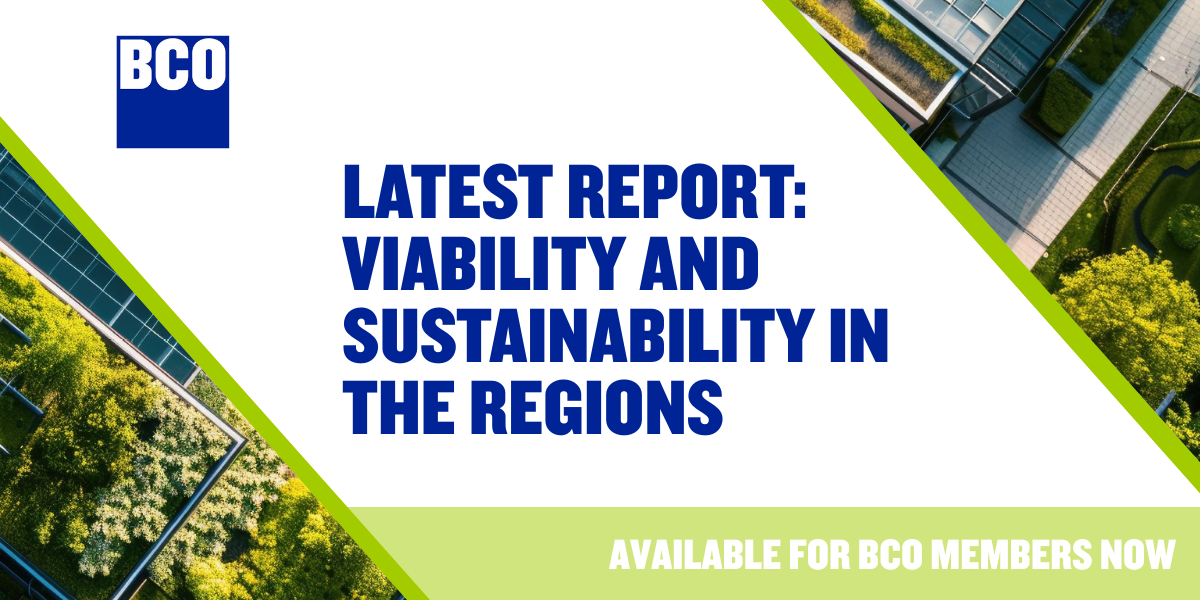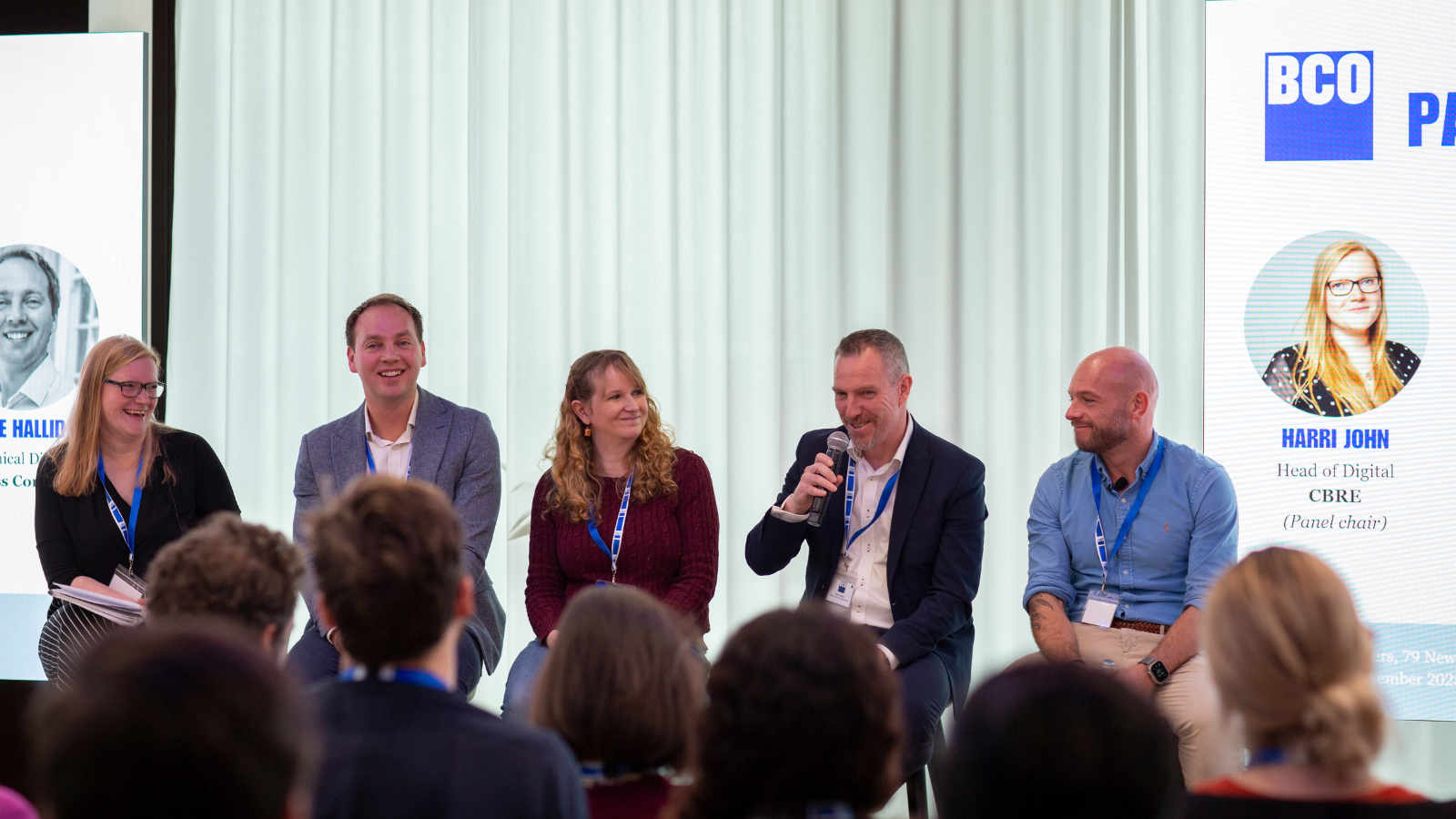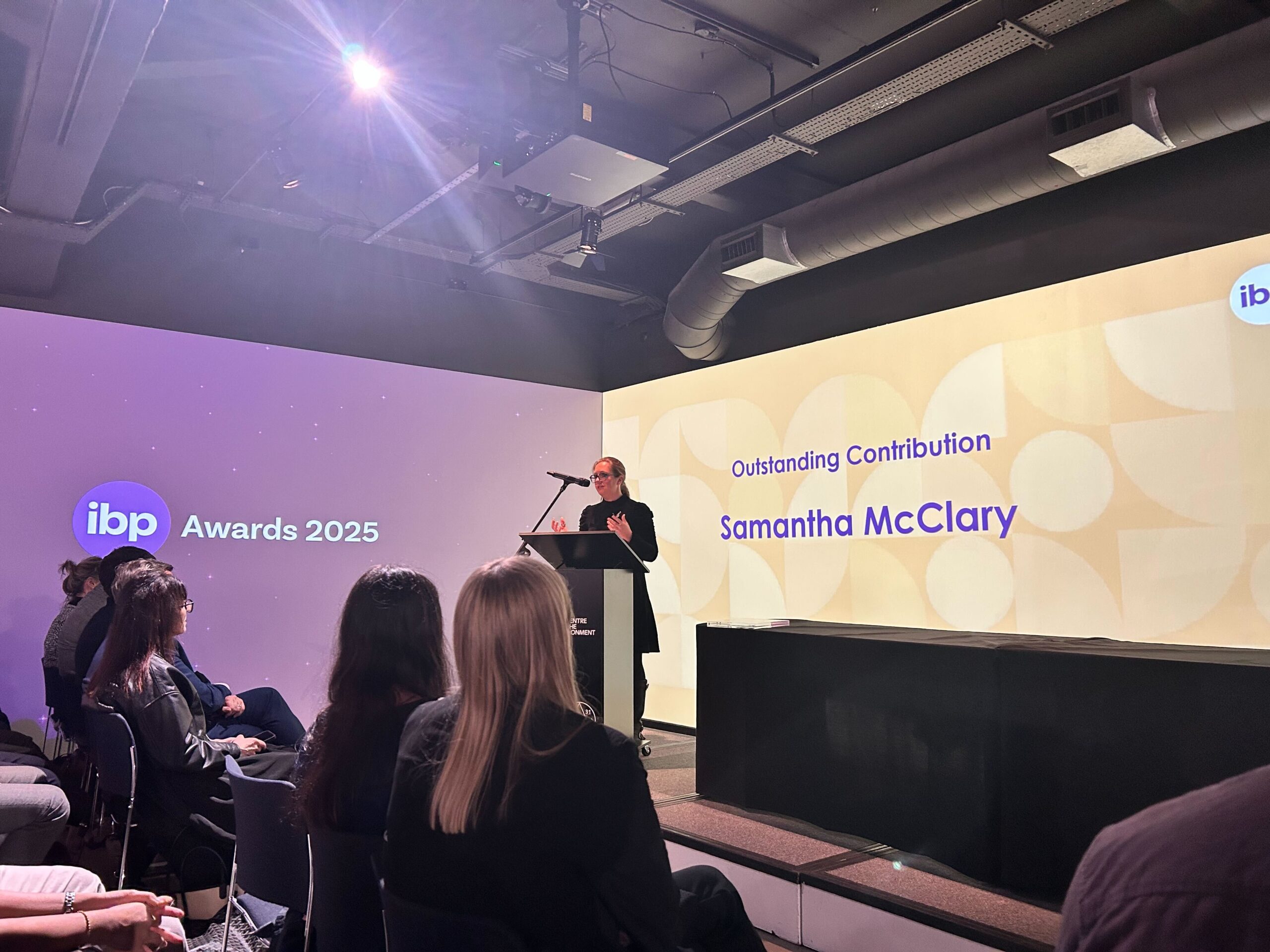
About Our Reports

Research reports overview
The BCO’s research reports are central to the BCO’s mission. Guided by our Research Committee, they develop and communicate best practice in all aspects of the office sector, providing a forum for discussion and debate.
Members and expert committees are welcome to propose research within the BCO’s areas of interest, which are underpinned by four pillars: economy, business, technology and ESG. Download the Guidelines for BCO Research Projects to find out more.
our publications
Are you a non-member or a student?
BCO Research Reports are available to BCO members for the first 3 months of publishing.
After 3 months, non-members and students can also download the reports.
The way we work has changed hugely over the years. The rapid pace of technology adoption and agile working have enabled us to work anywhere, at any time. This is still having a huge impact on the evolution of workplace design.
A workspace today is not just a desk. People want meeting spaces, collaboration areas, private booths and maybe even a cafe, all to suit different ways of working. Today, employers strive to create the best offices in order to recruit and attract the brightest talent.
The BCO’s research investigates workplace trends, from detailed analysis of occupier density to the effective space utilisation. Download our reports to read more on the future of the workplace and become a member to join the debate.
For many years, the construction and design of office buildings has incorporated environmental metrics and calculations such as BREEAM or energy performance certificates. While useful, these don’t necessarily represent reality. They provide a snapshot before a building is occupied, rather than looking at actual performance.
As demand for sustainable buildings grows, the debate around building performance is shifting. ‘Healthy buildings’ aren’t just those that minimise energy use; they must consider wellness, the supply chain and the wider impact. When designed effectively, the impact on people’s health and wellbeing can be enormous.
The BCO is committed to furthering the discussion around sustainability, sharing best practice to help the industry improve offices across the UK.
Increasing productivity is fundamental to sustaining economic growth. This is a key priority of government, as well as all businesses. It is increasingly understood how office design plays a key part in boosting people’s productivity.
While each business needs to consider how their office can provide the best spaces possible for people to work, there are commonalities. For a start, workplaces need to be healthy, efficient, effective and engaging.
The BCO’s research provides considerable insights into how office design should be considered, particularly in light of the shift to remote working. As this change continues, our research teams will continue to explore good practice.
All employers are paying closer attention to diversity and inclusion and the wider wellbeing of the people who work for them. Employment is the pathway to many wellbeing factors, from income to housing, mobility and security. The office sector needs to ensure that as many people as possible can benefit from the workplace.
Reports such as the BCO’s Designing for Neurodiversity research play a pivotal role in helping the office sector understand how to make the workplace more inclusive. They need to offer access to a wide variety of people and support them in their productivity.
Transport developments have a huge impact on the built environment. While the pandemic increased the number of people working from home, many people will always rely on public transport to get to the office.
The BCO’s research into how transport decisions will affect future office demand is far reaching. An increase in cycling infrastructure needs to be supported by adequate cycling facilities in offices, for example, while the growth of electric vehicles needs to be considered in the design of new offices.
Both urban and suburban office models need to reflect the evolution of the UK’s transport infrastructure, and our research will continue to debate upcoming trends.
The BCO’s research is wide-reaching, covering many aspects of the creation, delivery and management of offices. Our reports have investigated topics as varied as the future of business parks, the importance of affordable workplaces and the impact of cycling.
If you would like to propose a research topic, our Research Committee provides detailed guidance. Find out more here
Nothing has had more impact on the office sector than technology. Connectivity, the internet of things and growing datasets have already changed how people work and interact with their environment, both at home and at work. This change is going to continue.
Over the years, the BCO has published reports covering the major innovations in the office sector. Expert members have tracked the impact of technology on the built environment, exploring how digital solutions enhance the workplace experience. While investigating the solutions available, they look to the future, to see how technology can improve space utilisation, provide flexibility, boost productivity and reduce running costs.
As the office sector continues to evolve, our reports will be at the forefront of best practice and innovative discovery.
There is substantial evidence that the design of offices impacts the health, wellbeing and productivity of staff. What is less clear is how to achieve optimum design. The sector’s understanding is deepening, aided by advances in technology, but there is a long way to go.
The BCO has long recognised the importance of promoting the health and wellbeing agenda across the industry. Our reports include ‘Defining and Measuring Productivity in Offices’, which explores how the physical design and management of offices impact staff’s work.
A second major piece of research is the BCO’s year-long study Wellness Matters, a look at current health and wellbeing practices in offices and what to do about it. This practical guide examines how to create a healthy environment across the stages of a building’s lifecycle, from design to occupation.
A lot has changed since the BCO published the Guide to Specification in 2004, 2009 and 2014, publications that provide the industry standards for office design. Technological, sociological and environmental changes are reshaping approaches to providing offices, often making the traditional ways redundant.
The latest guide, published in 2019, took onboard the industry’s realisation that people, productivity and wellbeing are the principle drivers in the value proposition of creating office space. The office must bring people together in such a way that allows them to work at their very best.
The BCO’s research and reports will continue to evolve as the industry’s understanding of what people need from the office grows.
The relationship between building owners, managers and occupiers has shifted. Occupiers today ask for more from the spaces they occupy, which is demonstrated by the rise in coworking operators and managed workspaces. While people demand flexibility, occupiers need to provide the best workspace to attract and retain the strongest talent.
While more forward-thinking landlords have taken steps forward to improve the customer experience, more can be done. The BCO’s reports champion the importance of service delivery and the need to educate the next generation of professionals in how to provide the best customer experience.
Creating culture change within the industry requires insight into the best way forward. This is what the BCO strives for in this area of research.
Offices play a key role in making better places. They do far more than just provide a place to work; they can act as the stimulus for wider regeneration projects, bringing together a mix of commercial, social, educational and cultural uses.
There is a growing shift to make office development a catalyst for improved urban spaces. Large schemes bring green spaces and places to spend our free time.
The BCO’s research into urban design investigates how neglected neighbourhoods can be transformed, focusing on four pillars of great placemaking: vibrancy, connectivity, providing a sense of wellbeing and context.
The BCO regularly carries out research into specific office sectors. The recent report entitled Who Is The Science Occupier investigates who tenants really are in the growing life sciences sector. Alongside specialist facilities such as laboratory space, what facilities do they need? How is demand changing?
As life sciences and other specialist office sector occupier segments evolve, the BCO will continue to research how the industry can meet occupiers’ needs.
LATEST research reports

Productivity
VIABILITY AND SUSTAINABILITY IN THE REGIONS
09.12.25

Productivity
BCO SUSTAINABILITY CASEBOOK
24.10.25

Productivity
REVIEW OF POST-PANDEMIC UK OFFICE UTILISATION
10.07.25
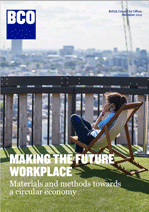
Design
Making The Future Workplace: Materials and methods towards a circular economy
03.12.19
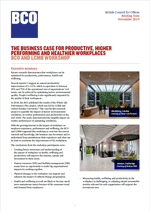
Productivity
The Business Case for Productive, Higher Performing and Healthier Workplaces – BCO and LCMB Workshop
06.11.19
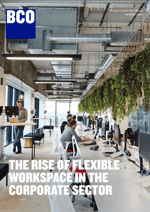
Workplace Strategy
The Rise of Flexible Workspace in the Corporate Sector
16.10.19
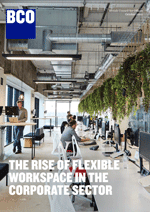
Workplace Strategy
The Rise of Flexible Workspace in the Corporate Sector
16.10.19
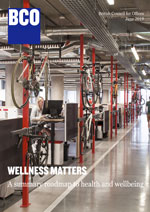
Health & Wellbeing
Wellness Matters: A summary roadmap to health and wellbeing
05.06.19
Find the right membership level for you and your business.
Join us today

COMMITTEES AND TEAMS
The BCO is run by a series of committees covering research, the regions, our awards programme and the next generation.
Read more

DIVERSITY, EQUALITY
and INCLUSION
The BCO champions diversity, equity, and inclusion, broadening the office sector and promoting participation from all backgrounds.
Read more

SPONSORSHIP
As one of the premier award ceremonies in the UK property calendar the BCO Awards delivers real value to its sponsors.
Read more

MENTAL HEALTH
The BCO is dedicated to supporting its members' mental health and wellbeing by providing links to sources of support through networks regionally and centrally.
Read more
